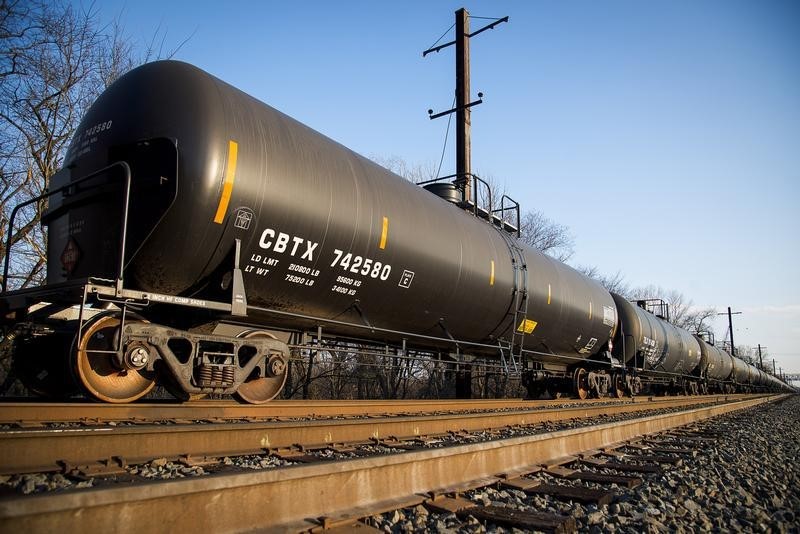By Georgina McCartney
HOUSTON (Reuters) -Oil prices rose further after the settlement on Thursday, rising more than $2 a barrel on a report that Iran is preparing to attack Israel from Iraqi territory in the coming days.
futures rose $2.15, or 3.13%, to $70.76 after settlement at 3:22 PM EDT, and Brent futures for January delivery rose $2.10, or 2.91%, to $74.26.
futures rose 61 cents, or 0.84%, to $73.16 a barrel. Brent futures for December delivery expired on Thursday. The more actively traded January contract settled at $72.81. WTI futures closed down 65 cents, or 0.95%, at $69.26.
Israeli intelligence suggests that Iran is preparing to attack Israel from Iraqi territory in the coming days, possibly before the US presidential elections on November 5, Axios reported on Thursday, citing two unidentified Israeli sources.
The attack is expected to be carried out from Iraq using a large number of drones and ballistic missiles, the Axios report said. The report states that carrying out the attack through pro-Iranian militias in Iraq could be an attempt by Tehran to prevent another Israeli attack on strategic targets in Iran.
“This puts back on the table the possibility that Israel will attempt another attack on Iran,” said Phil Flynn, senior analyst at Price Futures Group, who warns that Iran’s infrastructure may not be off-limits in the event of an attack.
Iran is a member of OPEC and produces about 3.2 million barrels per day, or 3% of global production.
The week started with a big sell-off, with Brent and WTI futures falling more than 6% on Monday after Israel showed some restraint in its retaliatory attacks on Iran over the weekend.
The possibility that OPEC+ would delay a planned increase in oil production also supported prices on Thursday.
According to Reuters, a decision could come as early as next week. OPEC+ will meet on December 1 to decide next policy steps.

In China, the world’s biggest oil importer, manufacturing activity grew in October for the first time in six months, suggesting stimulus measures are having an effect.
“Several international events have converged around the turn of the month that could leave oil markets in for a bumpy ride in early November,” Rystad Energy’s Sahdev said, citing the US elections, continued weak Chinese demand prospects, uncertainty about the OPEC+ and the war in the US. the Middle East.


